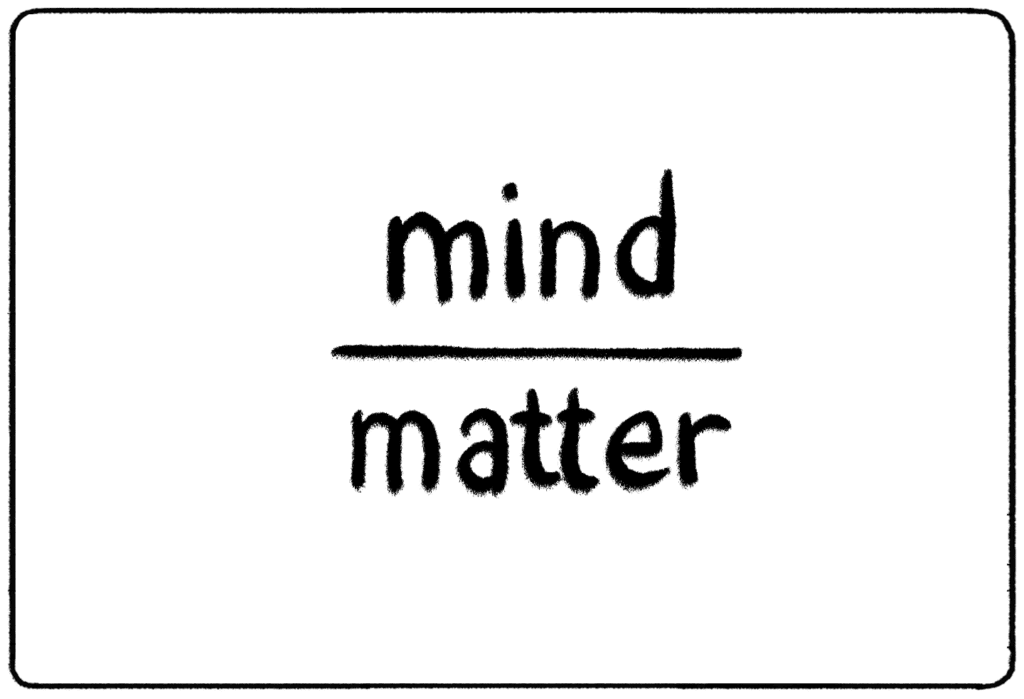Can you climb Mt. Kilimanjaro in shorts and shoes?
If you think to yourself, “no,” you’re not alone. But Wim Hof thinks that he can. And maybe thinking that he’s able to overcome these crazy physical feats is the first step in being able to do it.
Humans are extremely resilient creatures. We are possible of incredible feats!
Wim Hof, for example, has used his mind to conquer feats in nature that otherwise seemed impossible. His numerous accomplishments and approach to breathwork appear to be real-life proof that the idea of "mind over matter" works. But what does this phrase really mean? How powerful is the mind over our bodies and the matter around us? Let’s dive deeper into this phrase and where it fits into the world of psychology.
What Does The Phrase "Mind Over Matter" Mean?
In 1863, Sir Charles Lyell published The Geological Evidence of the Antiquity of Man and coined the term "mind over matter." In his book, the geologist argued that the human mind was evolving so quickly that we would continue to see an increase in mind over matter.

When we think about the ways that humans have “conquered” Earth since 1863, we could say that Lyell was right. We’ve defied gravity, gone to space, and can travel across continents in under a day.
But this phrase has been used in many other fields outside of geology. Politicians have used it. Motivational speakers have used it. Doctors have used it. And all of these professions usually speak to the same idea - that the mind is so powerful that it can overcome physical problems.
Take the 2014 book Think Away Your Pain. Or the 1937 book Think and Grow Rich. Thought leaders, spiritual leaders, and many more have claimed that the mind can achieve nearly impossible things.
But what do psychologists have to say about “mind over matter?”
Is "Mind Over Matter" Real?
Not all psychologists or philosophers agree with the phrase “mind over matter,” but it’s not for the reason that you might think.
In order to believe that the mind has power over the body, you have to believe that the mind and the body are two separate entities. This is a dualist point of view - that the mind and body can work together, but are ultimately separate.
The other side of this debate is the monist point of view - that the mind and body cannot be separated. Physicalism, for example, suggests that all thoughts and mental activity are just functions of the physical brain. Other monist viewpoints argue that everything is in our mind.
The mind-body debate is one of the most prominent debates in psychology and philosophy. But if you can separate the mind from the physical body and the physical world, you can start to debate whether or not the mind has power over the body.
Examples of Mind over Matter
Take Alex Honnold, who free soloed El Capitan in Yosemite National Park. In under four hours, he climbed over 7,500 ft - without any ropes or climbing gear.
Another example is Wim Hof. He climbed to the top of Mt. Kilimanjaro - only wearing shorts and shoes. He’s also run a marathon in the desert without any water. And he holds the record for the longest swim under ice - 57.5 meters!

How do people complete these phenomenal feats? Obviously, there is a lot of training that goes into running a marathon or climbing any distance. But Wim Hof isn’t known for a famous running technique. He’s known for teaching breathing and mindset practices that can help anyone feel more resilient and energized in their bodies.
He writes, “I’ve now been showing in scientific research that I’m able — just with the power of my mind, just with thought power — to resist cold water coming on the skin, not making the temperature of the skin go down. Just with thought.”
Mindfulness and The Physical World
Many psychologists believe that there is truth to “mind over matter.” Take, for instance, athletes. Studies show that confidence plays a big role in an athlete’s overall performance. Words of encouragement, coming from other people or yourself, could be that final push you need to knock out your opponent or cross the finish line.
The Reticular Activating System
What if you only decided to focus on words of encouragement or positive messages? What if you could only see “signs” that you were on the right path or that you were destined for greatness? Or what if you could shape the physical world so that it only presented opportunities, lessons, and a journey toward success?
Many argue that you can, if you just put your mind to it. The mind contains a system called the Reticular Activating System. It filters out all of the stimuli that come our way each second. Our minds cannot physically focus on every single sight, sound, smell, or memory that is accessible. Instead, it chooses to focus on specific stimuli, leaving the rest to go “unnoticed.” That fancy word that you’re seeing everywhere or that species of bird that appears to pop up on every walk? They were always there - it’s just that your mind has decided to focus on it, so you notice it more often.
Many argue that if we can shift our focus in one direction, we can create a whole new world for ourselves. The more you focus on learning about different birds, the more you will be able to recognize them out in the wild. The more you focus on the type of person you want to meet or become friends with, the more you will see them around town. Alternatively, the more you focus on physical strength and eating healthy, the more opportunities you will find to lose weight, get fit, and enjoy a healthier life.
Belief Systems Are Powerful!
Of course, you don’t have to use the “mind over matter” phrase to free solo a route 7,000 feet high or swim under ice. Maybe you just try to use affirmations to help you give a speech. Or you eliminate limiting beliefs and find yourself waking up each morning with more energy and motivation than you’ve ever had.

If your mind tells you that it can overcome physical limitations or seemingly impossible goals, maybe this phrase has some credibility.



